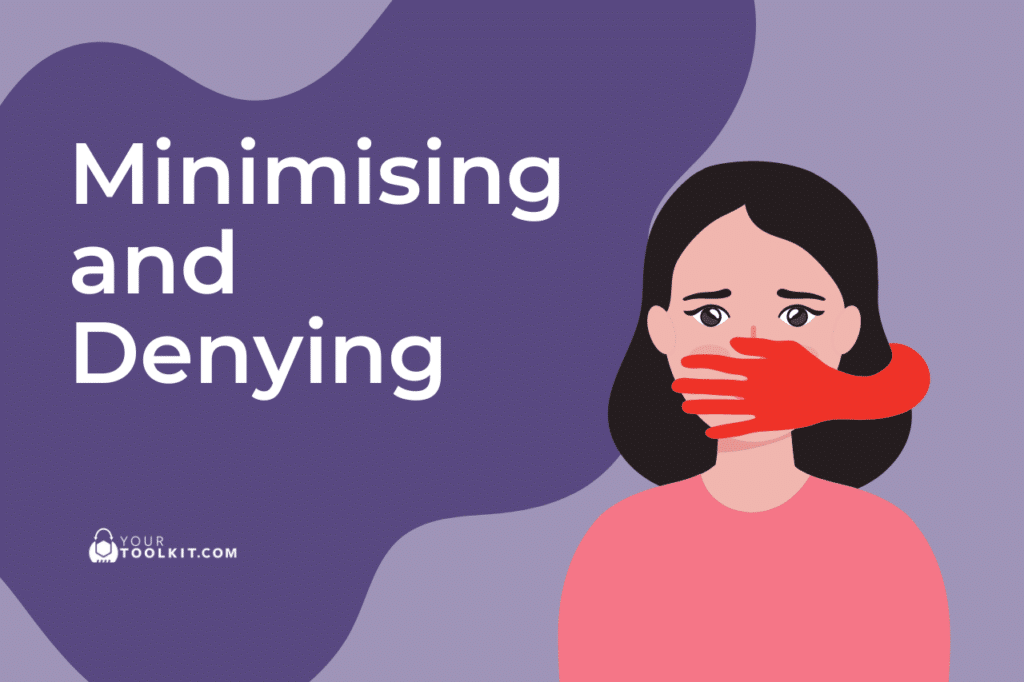What is Minimising and Denying as Abuse?
A key tactic of coercive control is minimising or denying that there is any abusive behaviour occurring. It is often referred to as ‘gaslighting,’ which is meant to make you doubt the reality of what you are experiencing.

Only unmute videos when it’s safe. Turning on sound affects all videos.
Minimising or denying might include denying that there is any serious impact from the abuse, and blaming the victim survivors and claiming that the abuse is their fault. The abusive partner may say things like “no one will believe you because you have no bruises. I wouldn’t do this if you didn’t make me so angry.”
Perpetrators that use this tactic can often control their behaviour around other people such as friends, bosses or the police.
Riley lives in the country with her husband John and three children. They actively participate in social sports in the local community. John is often making jokes in front of their friends and has a habit of making all the jokes about Riley. She feels upset and embarrassed about this. She has asked her husband to stop doing it but he insists that she is making a big deal out of nothing and that she is too sensitive. Riley wants to stop going to social events, but is afraid of what John will do if she doesn’t show up.
Only unmute videos when it’s safe. Turning on sound affects all videos.
Examples of Minimising and Denying as Abuse
- Deliberately downplaying rude remarks to avoid any consequences by claiming it was a ‘joke’
- Denying your perception (gaslighting), e.g. “You've got it all wrong. That never happened. I don't remember saying that. You're exaggerating”
- Demanding you feel differently about something that upsets you, e.g. “Get over it, don’t be so sensitive. Pull yourself together. Don’t look so serious”
- Your partner behaves badly at home compared to charming when with family and friends Refusing to acknowledge your achievements, e.g. “Don’t look so proud of yourself”
- Living in a constant state of confusion and doubt about what you feel and what you experience




